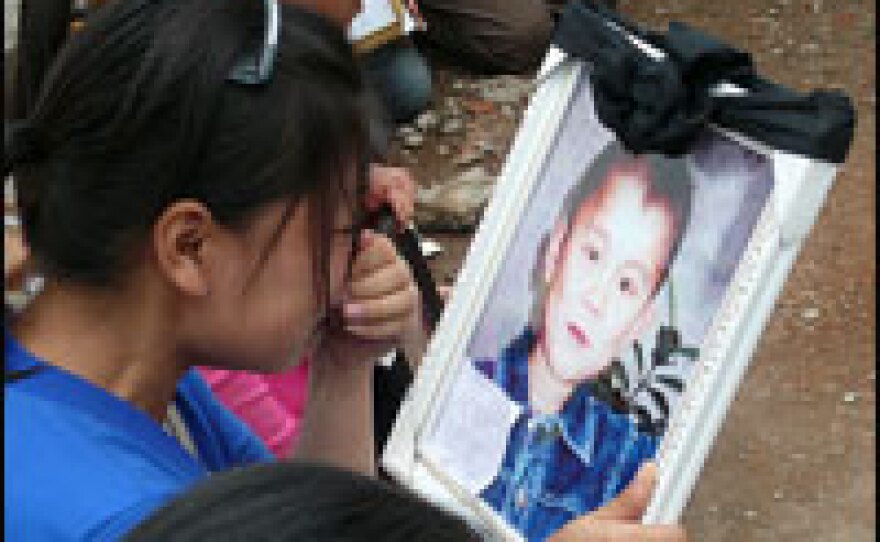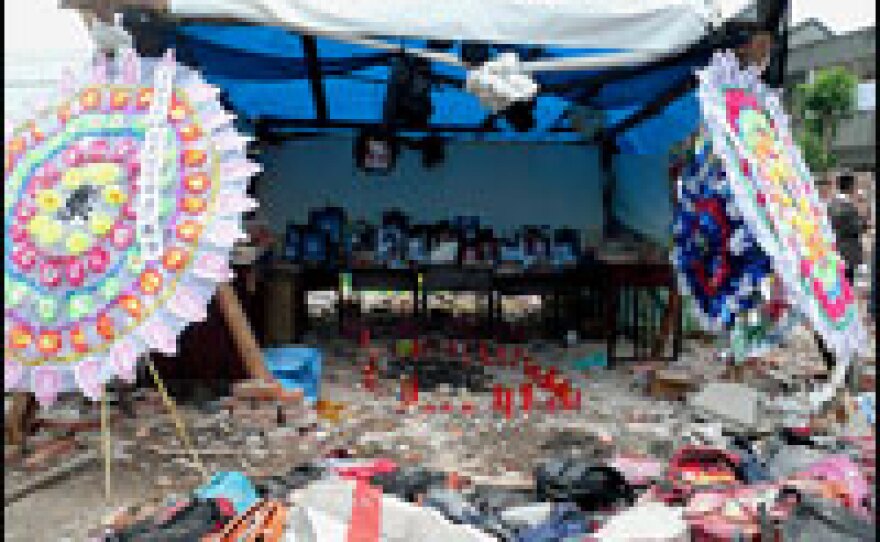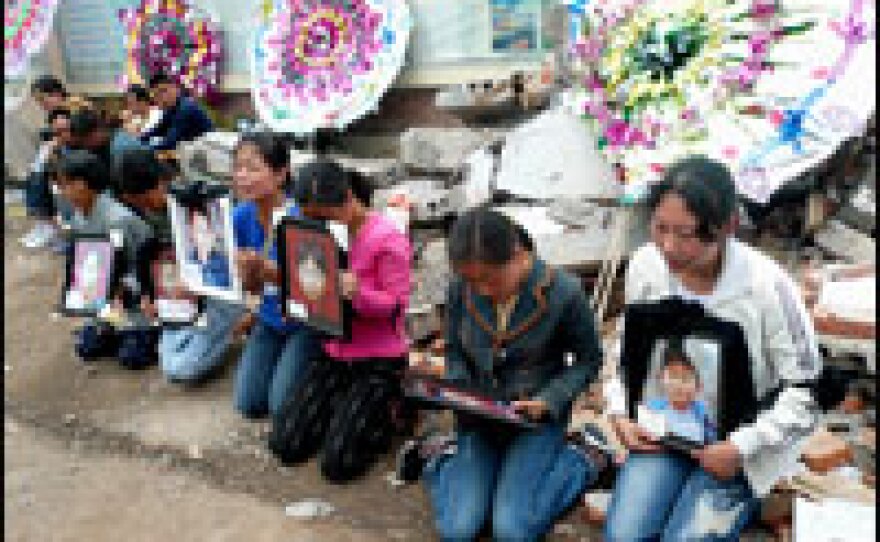


China has vowed to deal severely with anyone found responsible for shoddy state building work. The vow came after nearly 7,000 classrooms collapsed in the earthquake last week, killing thousands of students.
Now some parents are trying to pressure the local government into conducting investigations into their allegations of local corruption, greed and mismanagement.
A catastrophic chain of events led to the collapse of one school in the town of Wufu.
At the Fuxing primary school Wednesday, funeral music played as parents lined the driveway. Each wore a black armband and carried the photo of a lost child. Their faces were drawn with sleeplessness and grief.
At least 127 students died when the three-story school collapsed. The buildings around the school are largely undamaged — leaving parents angry.
"We parents don't believe our children died in a natural disaster," said Chen Hupei, his eyes red. "It was man-made."
Chen Hupei's 10-year-old son, Chen Xin, who loved roller skating and basketball, died in a ground-floor classroom because he couldn't escape in time.
Another parent tapped the steel rebar in the concrete pillars. The parents believe there was too little steel in the building's structure, that its foundations weren't sunk deep enough and that there were no emergency exits.
"I believe the government meant well when it built this school," Chen said. "But some corrupt officials were saving money to pocket themselves. This school was built in 1989 when the safety guidelines weren't so strict. But it should have been subject to safety checks twice a year, under a law passed two years ago."
Zhu Qi, the deputy director of Mianzhu education bureau, came to the school to meet the parents, but he denied responsibility.
"Building safety is a matter for the construction bureau," he said, standing shoulder to shoulder with the school's headmaster. "I'm not passing the buck. We'll take responsibility for whatever is ours to deal with."
One angry parent shouted that none of the buildings fell down as he gestured at surrounding blocks, while following the official around.
Many noticed the town's government buildings were largely undamaged. It is a pattern that has been repeated elsewhere.
That is because China is building its schools on the cheap. Regulations allow a budget of $350 per square meter to build government offices in towns. That compares with the cost of $64 per square meter for schools in one nearby county. Money is at the heart of what went wrong here.
Another parent accused the school authorities of renting out the newer one-story classrooms to a business to make money — moving the children into the older building. The newer classrooms were unscathed. She says that the authorities condemned the children to death.
"I've never signed any rental contract," headmaster Wang Weiguo said, denying the allegations. "And the relevant authorities never told me the school building was unsafe."
The parents were also angry with the school's teachers, all of whom escaped the building and fled the scene.
"Look at my hands," one parent says. "I dug through the rubble to look for my children. Then look at the teachers' hands."
Some like Chen Hupei believe the law –- and the central government –- are on their side.
"The government will help us get justice," Chen says. "The government is good; it's just certain officials who aren't."
Yang Rong clutched her daughter's dictionary of proverbs to her chest. She found it in a pile of schoolbags lying in the debris. She opened the front page and found the word mama written inside the front cover.
The parents built their own shrine. They gathered desks from the classroom and placed pictures of some of the children who died on them. Incense burned in front of the desks. And a sign ran across the top of the shrine that says: "Let us remember with pain our children who died in vain."
The cameras clicked as one young woman broke down, stroking the photo of her bright-eyed son as if it might bring him back.
The parents want journalists — and the outside world — to bear witness to their suffering. Only then can they bring about change.
Copyright 2022 NPR. To see more, visit https://www.npr.org. 9(MDAzMjM2NDYzMDEyMzc1Njk5NjAxNzY3OQ001))







